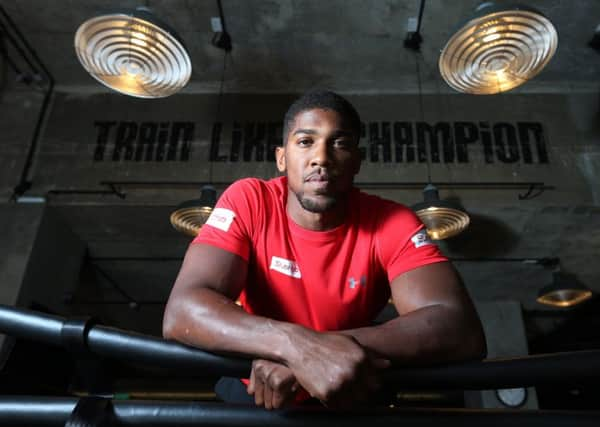Jayne Dowle: North should box clever to unlock children's potential


I made the decision to leave London when my son was a year old because I wanted him to be close to his grandparents and to have a garden big enough to kick a football in.
And also, I wanted Jack to have a decent education. A decade and a half ago, London secondary schools were in a mess; under-achieving and rife with bullying and gang warfare. I thought he’d have a better chance here in Yorkshire.
Advertisement
Hide AdAdvertisement
Hide AdSo I’m very interested in Growing Up North, the new report from Children’s Commissioner for England, Anne Longfield, who is a mother like me and lives in Leeds. Her conclusions make some strong points about why young people in our region are failing to compete on a level playing field with their contemporaries in London and the South East.


Growing Up North finds that London children are 15 per cent more likely than Northern children to achieve at least A*-C in GCSE Maths and English. London children are 40 per cent more likely than Northern children to attend university.
And London children who receive Free School Meals are 40 per cent more likely to achieve at least good grade in maths and English GCSE and twice (104 per cent) as likely as Northern children to attend university.
When Jack was born in the East End. The local secondary school, George Green’s, was always in the news for the wrong reasons. In recent years however – like many in London – it has turned itself around and is now a “good” school according to Ofsted, leading the way in improving life chances for children from a massively-diverse range of backgrounds.
Advertisement
Hide AdAdvertisement
Hide AdMuch of this turnaround has been credited to the new ultra-tough “super-heads”, but given what I know about the North/South divide, the confidence has come from the kids themselves, their peer groups and their families.


Talk to a young person from London these days and there’s a cockiness and a sense of entitlement that’s come up from the streets. There are myriad reasons why, but living in the capital and seeing the extremes of privilege and poverty every day must be a factor.
It’s spearheaded and supported by strong role models such as grime artist Stormzy and boxer Anthony Joshua. They may have had their own teenage troubles, but stick to strong family values and a determined work ethic. I’m not sure we’re there yet in Yorkshire, but we should be. We should support our own role models and send them into schools to talk to young people. And they don’t have to be famous, just know what they’re talking about.
Anyway, all those years ago, we came home to Barnsley, where we have lived ever since. And there have been times during Jack’s primary school years when I wondered if we had done the right thing, in education terms at least.
Advertisement
Hide AdAdvertisement
Hide AdWhen he started school, there seemed to be no focus on the interests of individual children, and no way of unlocking the potential that lay beneath the tantrums and screwed up worksheets. At 11, I sent him to the local academy secondary school because it seemed to offer the individualised support he needed. This has paid off. Jack is now hoping for sixth-form college and is thinking about teaching history. Under a series of interventions and with the care and support of dedicated teachers at his academy, my son has transformed his own life chances.
So you can’t tell me much about the importance of instilling aspiration in our children, whatever their socio-economic background. Horizons are still too limited around here, entire careers never even considered. I’ve not heard a single one of Jack’s friends say that they want to be a lawyer, a doctor or a television director. But I live in hope.
His sister recently took part in Rock Challenge, an international schools dance and drama competition supported by the Be Your Best Foundation, a registered charity which promotes substance-free and healthy living for young people. It aims chime precisely with this new report’s recommendations to make the arts and sport a priority in our region.
Hundreds of students from South and West Yorkshire and the North West took part in the event, held at Magna, the former steelworks in Rotherham. The location itself was loaded with irony, especially for one school from Sheffield. Their take on the 1984 miners’ strike won first prize and a place in the national finals.
Advertisement
Hide AdAdvertisement
Hide AdBut what a celebratory event this was; young people, many from schools in areas of high deprivation and poverty, truly proved that they can compete with the best. And even before Ms Longfield’s report, this evening had got me thinking. The crisis of confidence amongst children and young people in the North goes deeper than a string of comparative exam results.
It’s about more than arguments over university places versus apprenticeships and it goes further than where you live. It’s about finding ways to tell our children that they are just as good as anyone else.